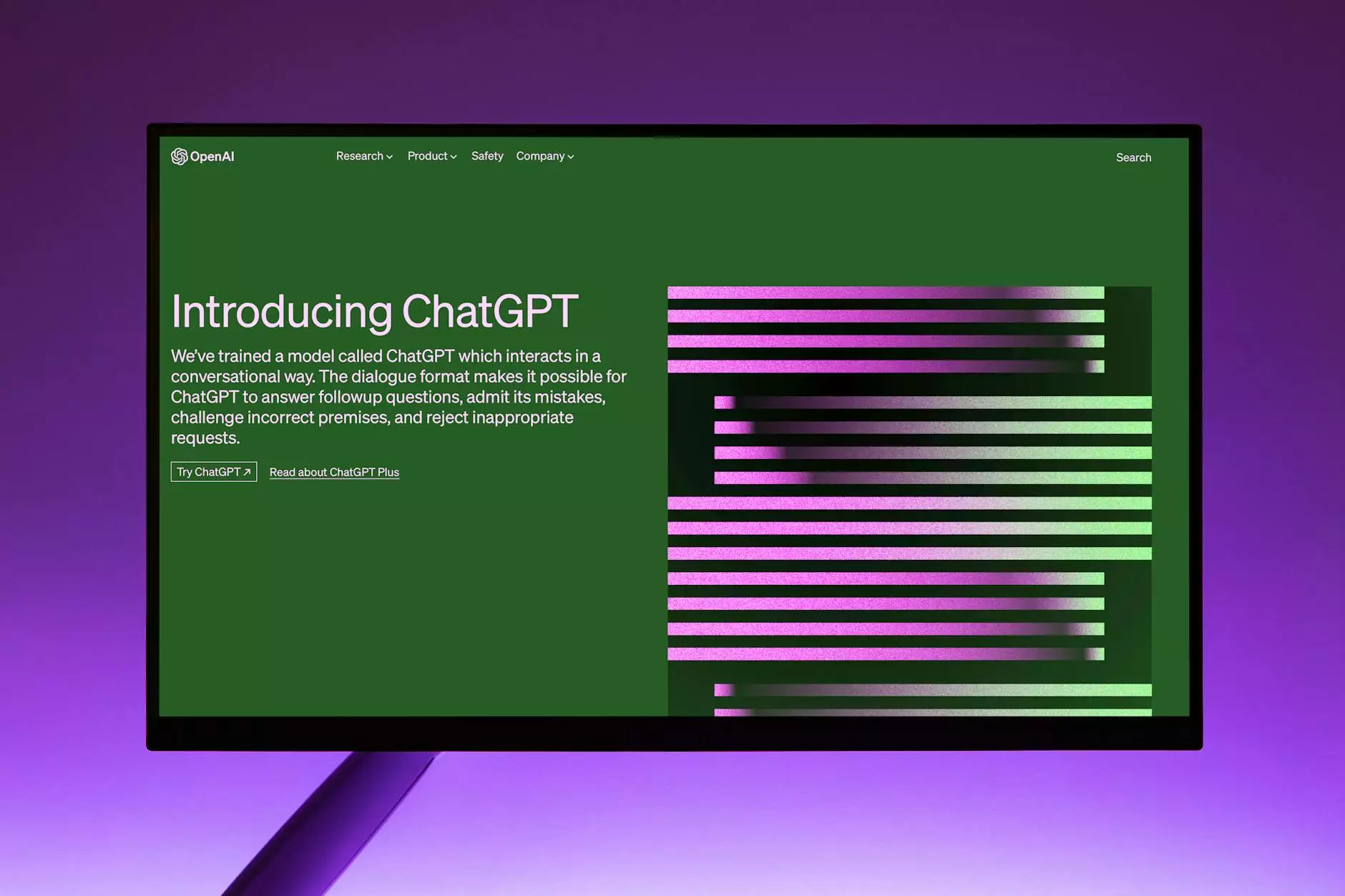Transforming Education: The Impact of AI That Writes Texts

The landscape of education is evolving at an unprecedented pace, driven by advancements in technology. Among these advancements, the introduction of AI that writes texts has opened new doors for educators, students, and even parents. This article delves deep into how artificial intelligence is reshaping educational services, enhancing special education, and creating a learning environment that is more accessible and effective than ever before.
Understanding AI in Education
To appreciate the role of AI in education, it’s crucial to understand its underlying principles. Artificial Intelligence refers to the simulation of human intelligence processes by machines, particularly computer systems. These processes include learning, reasoning, and self-correction.
AI systems can analyze vast amounts of data, recognize patterns, and even generate text. The ability of AI to write coherent, contextually relevant text has emerged as a powerful tool in the educational sector. It provides personalized learning experiences tailored to the unique needs of each student.
Benefits of AI That Writes Texts in Education
The integration of AI that writes texts into the educational framework offers numerous benefits:
- Personalized Learning: AI can create customized learning materials that adapt to the skill level and learning speed of each student.
- Enhanced Engagement: AI-generated content can include interactive elements and relatable scenarios, keeping students engaged and motivated.
- Accessibility: AI tools can assist those with disabilities by offering text tailored to their specific needs, ensuring everyone has access to quality education.
- Time Efficiency: Teachers can save time on lesson planning as AI can generate comprehensive lesson plans, quizzes, and instructional materials quickly.
- Quality of Content: AI can curate high-quality and up-to-date information based on the latest research and findings in various fields.
Innovative Applications of AI in Educational Services
Educational services are rapidly adopting AI technologies that write texts in various ways. Here are some innovative applications:
1. Automated Grading and Feedback
AI systems can evaluate student assignments and provide feedback almost instantaneously. By analyzing writing patterns and content, AI can offer suggestions for improvement, enabling students to refine their skills efficiently.
2. Intelligent Tutoring Systems
These systems offer personalized tutoring experiences by identifying areas where students struggle and adapting the learning content accordingly. AI can generate practice questions, provide explanations, and even summarize lessons, thus enhancing the overall learning experience.
3. Content Generation for Special Education
Special education requires unique approaches to meet diverse learner needs. AI can produce tailored instructional materials that are suitable for students with different abilities. For example, AI can generate simplified texts for young readers or develop interactive narratives that engage students with autism.
4. Curriculum Development
Educators often face the challenge of keeping content relevant and engaging. AI can analyze trends in education and suggest updates to curriculum content, ensuring that learning materials are aligned with current knowledge and students' interests.
AI That Writes Texts: A Game Changer for Special Education
In the realm of special education, the benefits of AI are profoundly significant. Students with learning disabilities often require tailored approaches to grasp complex concepts. AI that writes texts can help bridge this gap through various means:
- Customizable Reading Levels: AI systems can modify texts to match the reading levels of students with varying abilities, ensuring comprehension and learning retention.
- Multi-sensory Learning: By generating text that incorporates visual elements and auditory support, AI enriches the learning experience for students who benefit from multi-sensory approaches.
- Emotional Support: AI chatbots can provide emotional support and mentorship to students, helping them navigate educational and personal challenges.
Challenges to Overcome in AI Education Implementation
While the benefits of using AI that writes texts are clear, implementing these technologies in educational systems is not without challenges:
1. Data Privacy Concerns
With the use of AI comes the concern over data privacy. Schools and educational institutions must ensure the protection of student data as they implement AI technologies. Compliance with data protection regulations is critical to maintaining trust with students and parents.
2. Training Educators
For AI tools to be effective, educators must be trained in their use. Professional development programs that focus on technology integration are essential to empower educators to leverage AI tools effectively.
3. Equity of Access
There is a risk that not all students will have equal access to AI tools due to socioeconomic factors. Ensuring that all students, regardless of their background, have access to these resources is essential to uphold educational equity.
Looking Ahead: The Future of AI in Education
The future of education is undoubtedly intertwined with the capabilities that AI that writes texts brings to the table. As technology continues to advance, we can expect several trends:
- Increased Personalization: The customization of learning will become even more pronounced, with AI systems adapting in real-time to the needs of each student.
- Global Access to Quality Education: AI can democratize access to high-quality educational content, reaching students in remote or underserved areas.
- Collaboration Between Humans and AI: Educators will work alongside AI tools to enhance teaching practices, maximizing the strengths of both parties.
- Ongoing Research and Development: Continuous research in AI's role in education will lead to the development of more sophisticated tools that cater to a broader range of learning styles and abilities.
Final Thoughts
The integration of AI that writes texts into educational services represents a significant leap toward a more inclusive, effective, and engaging learning environment. Educators, students, and educational institutions must collaborate to capitalize on these technologies while navigating the challenges they present. By doing so, we can harness the full potential of AI in transforming education for generations to come.
As we continue to explore and develop these innovations, the focus should always remain on enhancing the educational experiences of students. AI is not just a tool but a partner in the educational journey, paving the way for a future where every learner has the opportunity to thrive.









